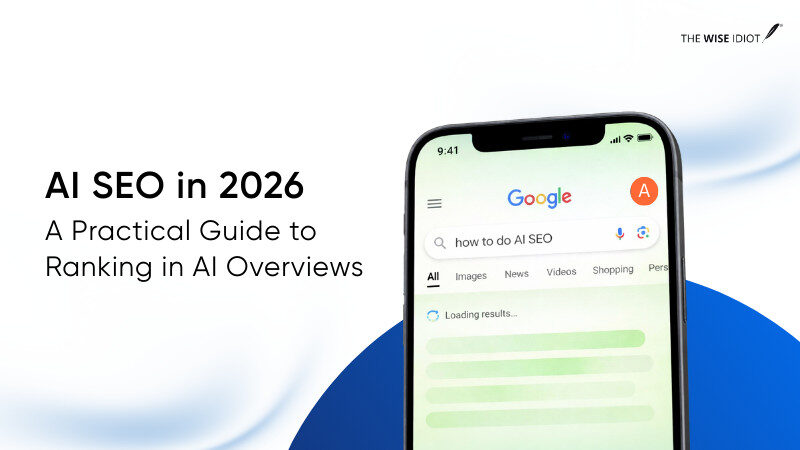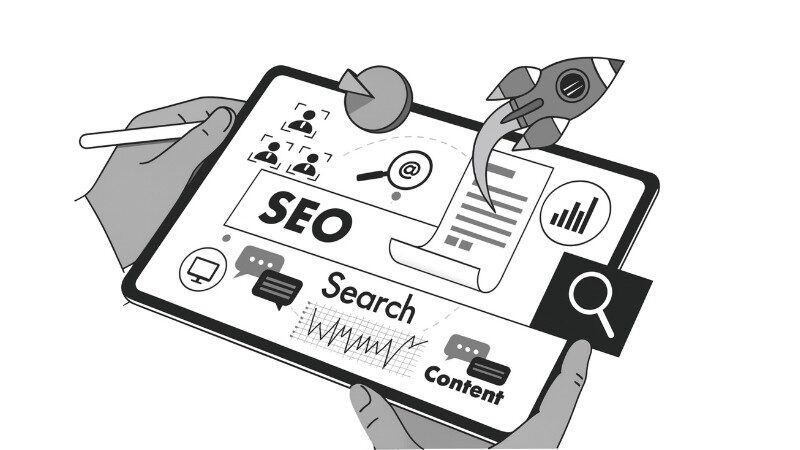Simran, a blogger, poured her heart and soul into creating an exceptional piece of content. It’s well-researched, beautifully written, and delivers valuable insights. She hit the publish button with high hopes, expecting her masterpiece to soar to the top of Google’s search results and captivate audiences far and wide. But alas, it doesn’t quite happen as she envisioned. Her content gets lost in the vast abyss of the internet due to the lack of credibility or relevance.
Sounds frustrating, doesn’t it?
Well, In the ever-changing realm of content marketing, where the competition is fierce, it’s not enough to merely produce amazing content. To stand out and capture hearts and minds, we must harness the full potential of EEAT (Experience, Expertise, Authoritativeness, Trustworthiness), the Google algorithm update. You may be wondering what that is and how to establish it. Here is the answer to all of your queries regarding EEAT.
Table of Contents
ToggleWhat is EEAT?
EEAT is part of Google’s Search Quality Rater Guidelines—the handbook that real people use to evaluate the quality of search results. Consumers have become more selective and have higher expectations in a world filled with information and overwhelming content. They seek credible and reliable sources that can provide them with valuable insights, guidance, and solutions. This is where EEAT steps as a guiding principle.
EEAT is also known as the four pillars of content marketing:
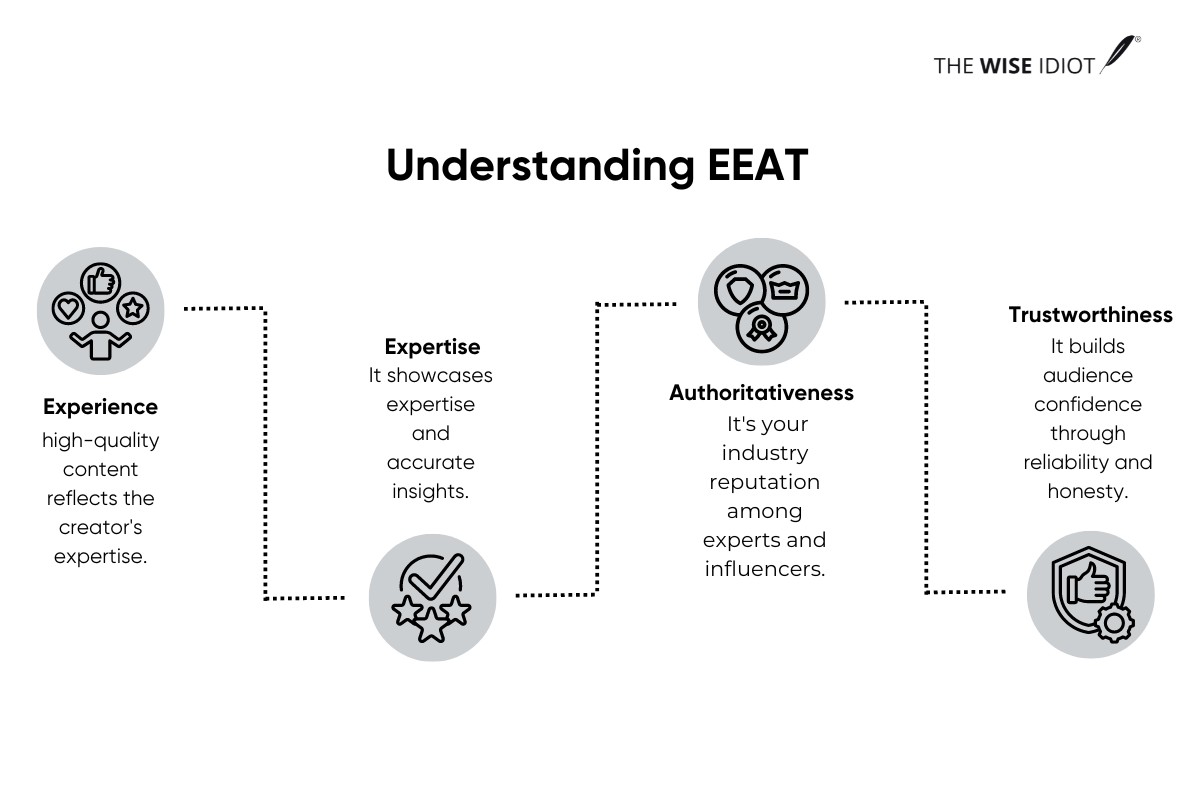
1. Experience
Content that is of high quality showcases the creator’s personal experience with the topic.
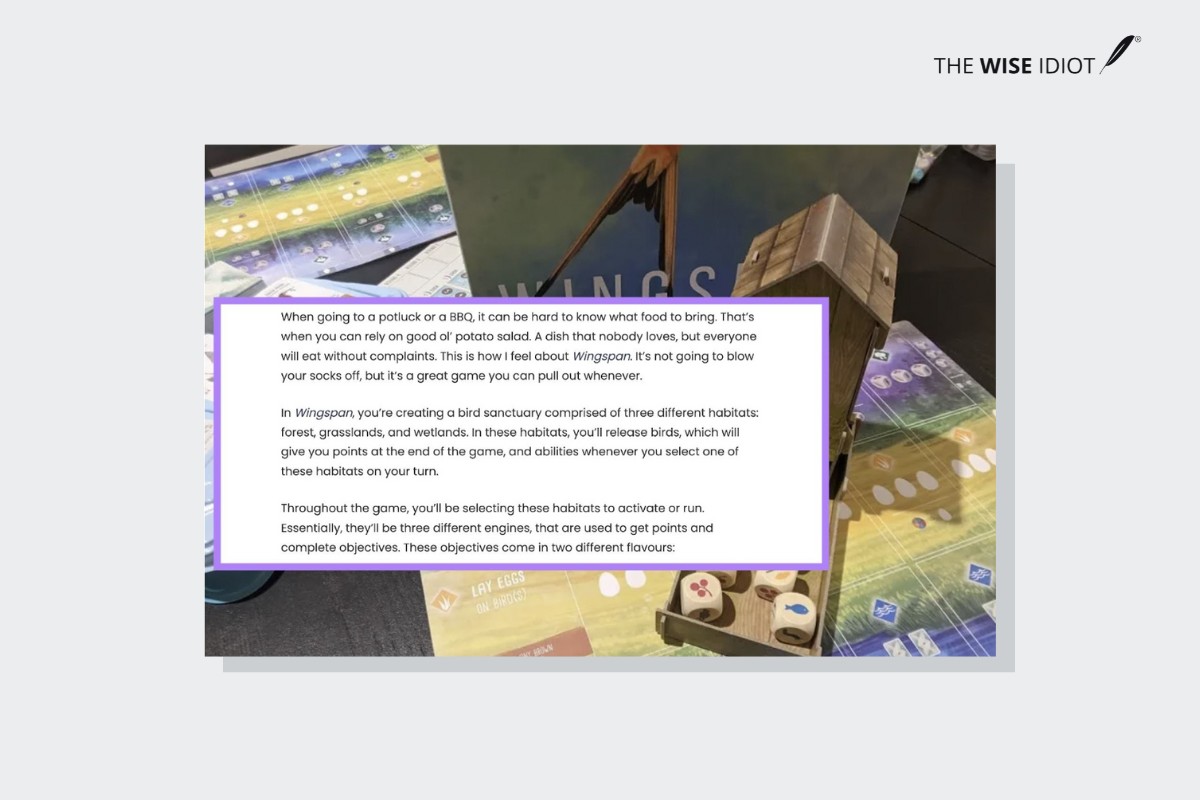
2. Expertise
It emphasises the mastery and skillset honed over time, highlighting the ability to provide accurate and insightful information.
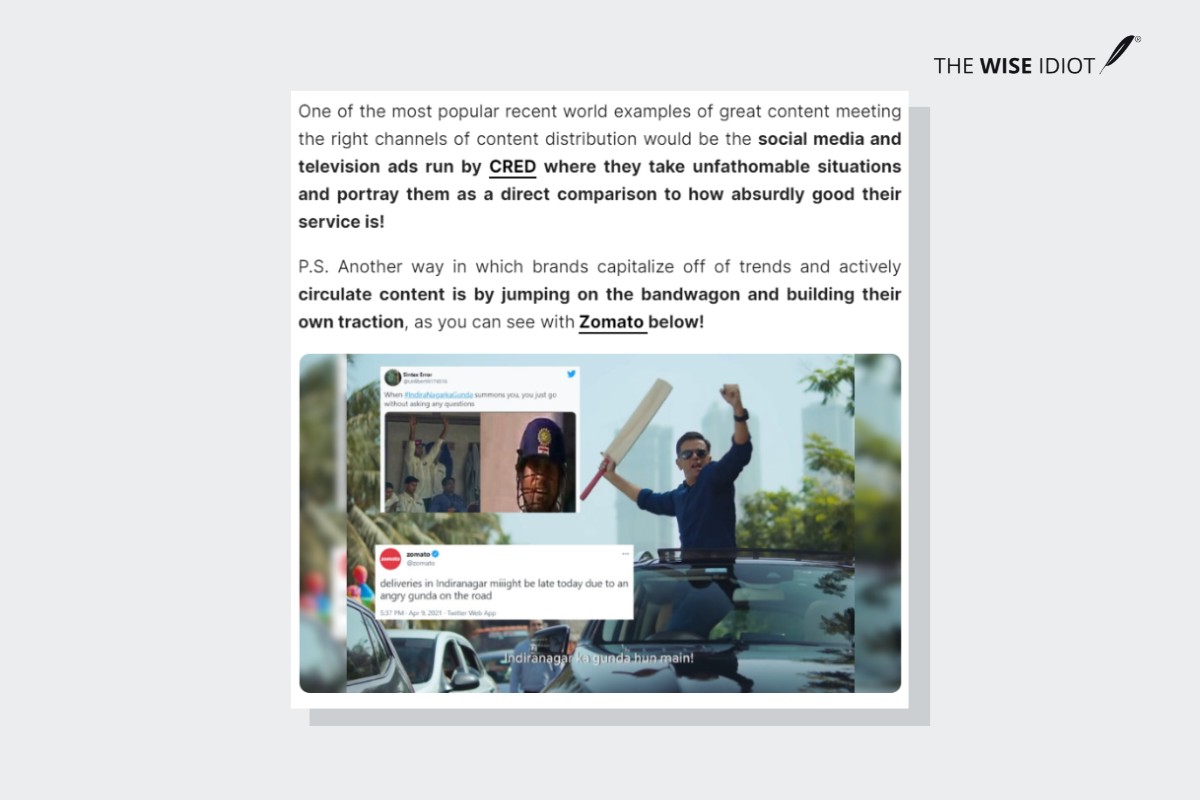
3. Authoritativeness
It is your industry reputation, particularly among experts and influencers in your niche.
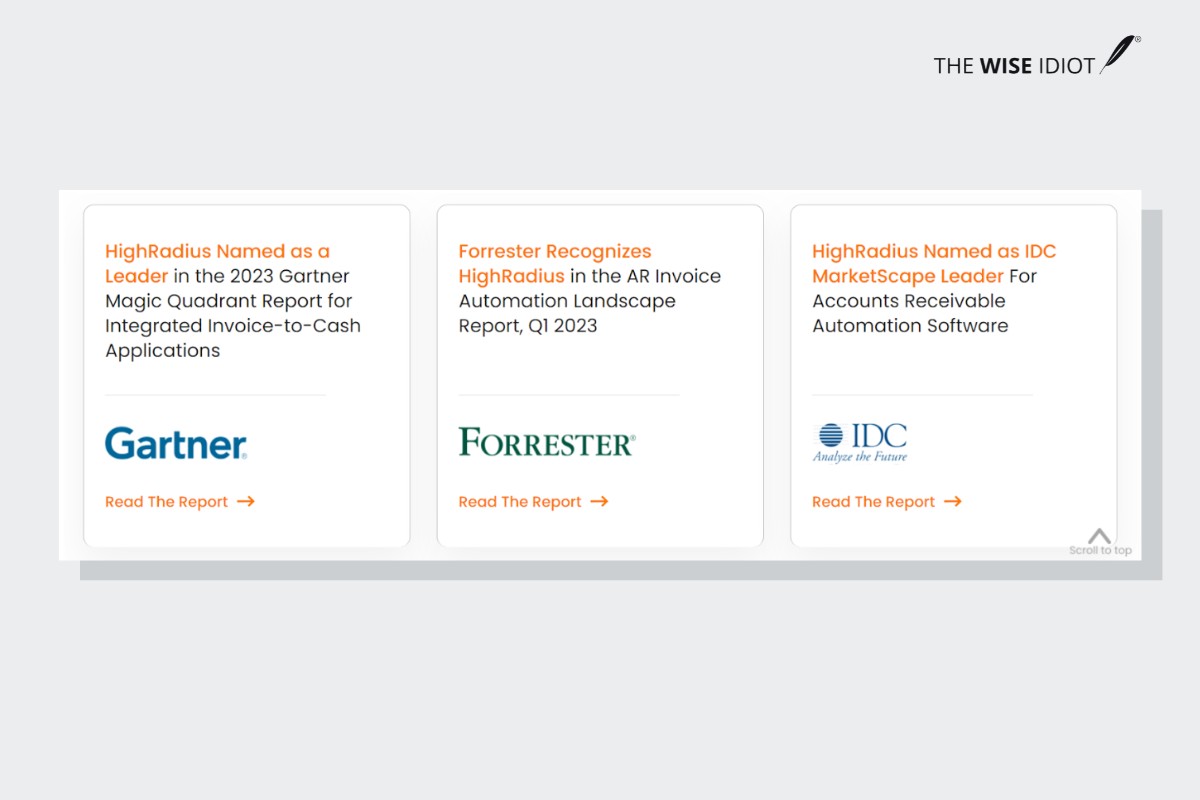
4. Trustworthiness
It instils confidence in the audience by establishing the reliability and honesty of the company.
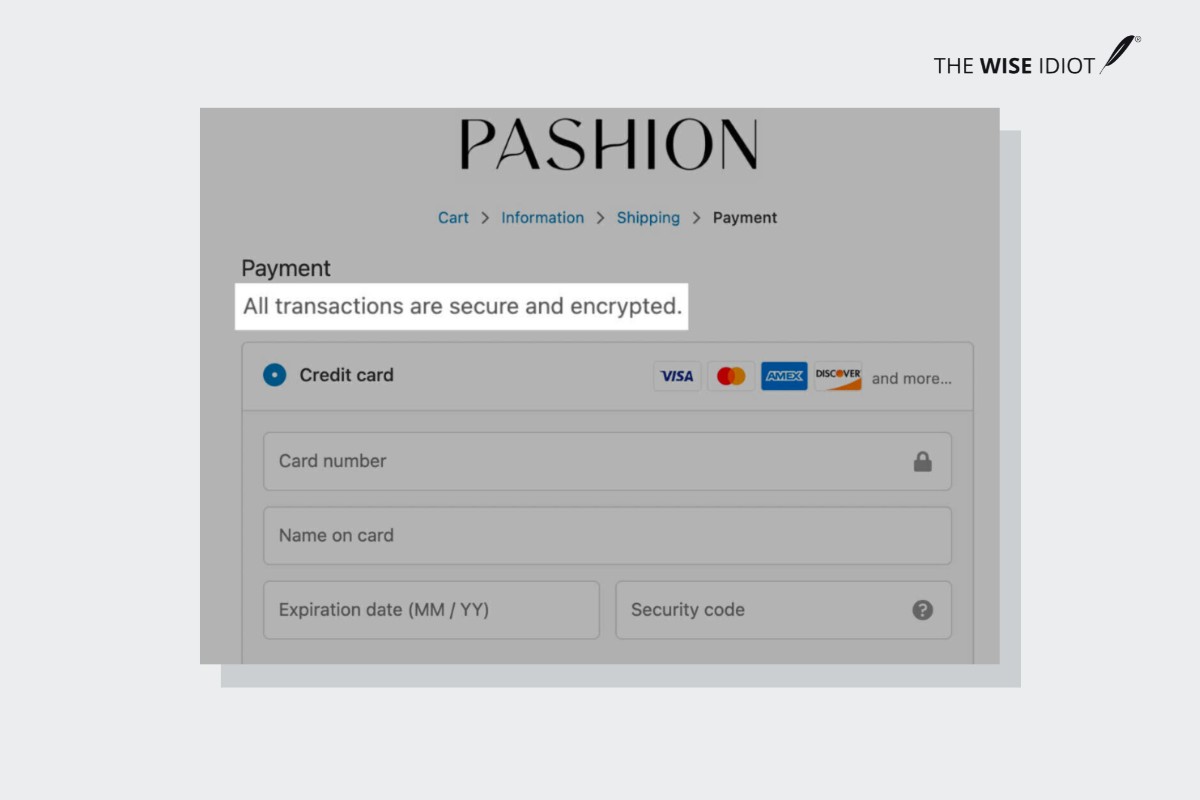
Evolution of EEAT: From EAT to EEAT
The evolution of Google’s approach to search can be seen in the transition from EAT (Expertise, Authoritativeness, Trustworthiness) to EEAT (Expertise, Authoritativeness, Trustworthiness + Experience). The addition of “Experience” reflects Google’s evolving understanding of user needs and the importance of providing more personalised and relevant search results.
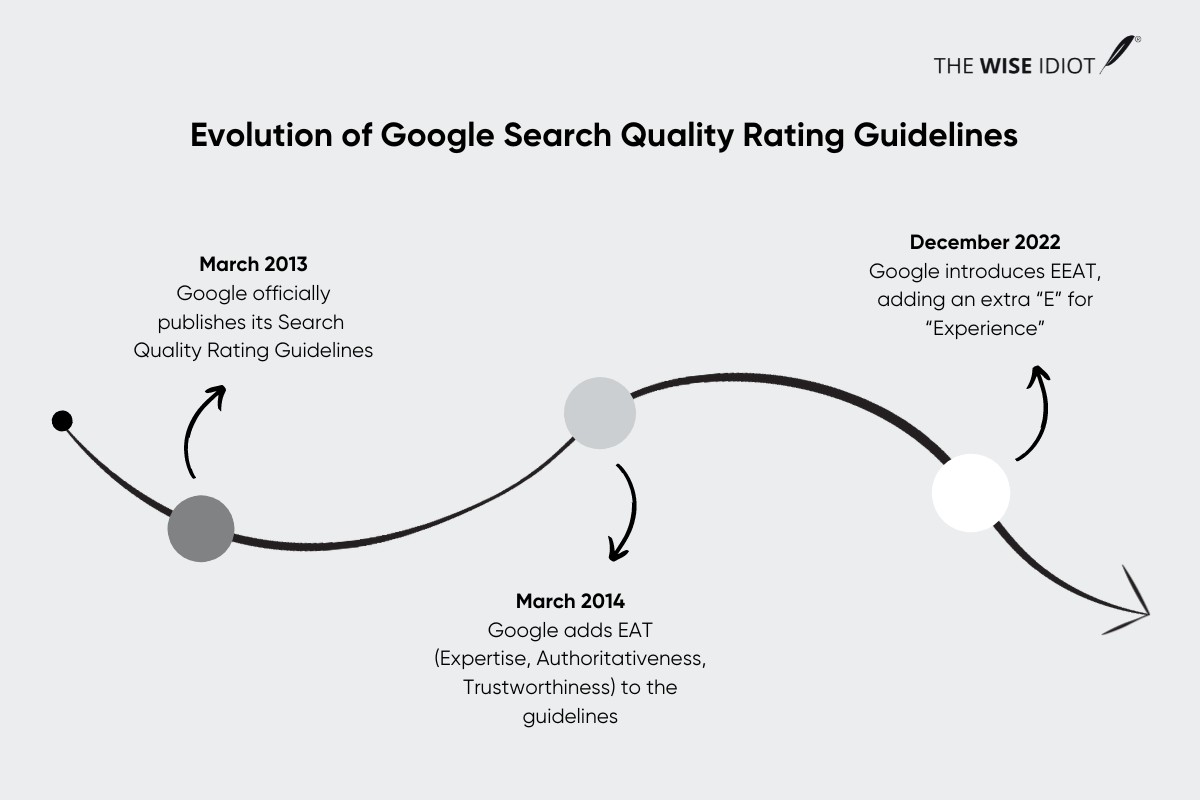
Google now considers user experience in addition to the credibility and expertise of content creators when determining the quality of search results. This means they take into account factors such as:
- User satisfaction
- Relevance
- Comprehensiveness of information
This Google update reflects its recognition that users seek accurate and reliable information and expect a seamless and engaging search experience.
Regarding this evolution, Divyank Jain, Co-founder of The Wise Idiot, explains, “AI is transforming how we access and interact with content. However, when it comes to seeking expert knowledge and authoritative guidance, we still value the input of human beings.
As content creators, it’s important to prioritise human needs and perspectives, emphasising our expertise, experience, and thought leadership.
So, for every content marketer, this becomes a great formula to ideate and to create content according to this, as well as to keep in mind not just for writing content but creating any communication that we are doing it for humans first. And these four things, which are a pillar of content, are pretty handy when we are creating content for humans.”
The Importance of EEAT for SaaS and Fintech Businesses
EEAT is crucial for SaaS businesses to succeed in SEO. Search engines, such as Google, prioritise EEAT when ranking websites. This is especially important for SaaS businesses with a massive potential customer base of over 5.18 billion internet users as of April 2023.
When a website demonstrates high levels of expertise, authority, and trustworthiness in its content, search engines recognise it as a reliable source of information. This recognition leads to improved rankings in search results, resulting in increased organic traffic and better visibility for Indian businesses.
For instance, Basecamp is a well-known SaaS brand that has been publishing well-researched and accurate product descriptions for many years. This has helped Basecamp establish itself as an expert in the project management software space. Consequently, search engines are more likely to rank Basecamp’s website higher in relevant search queries. This has led to more potential customers finding Basecamp and signing up for its service.
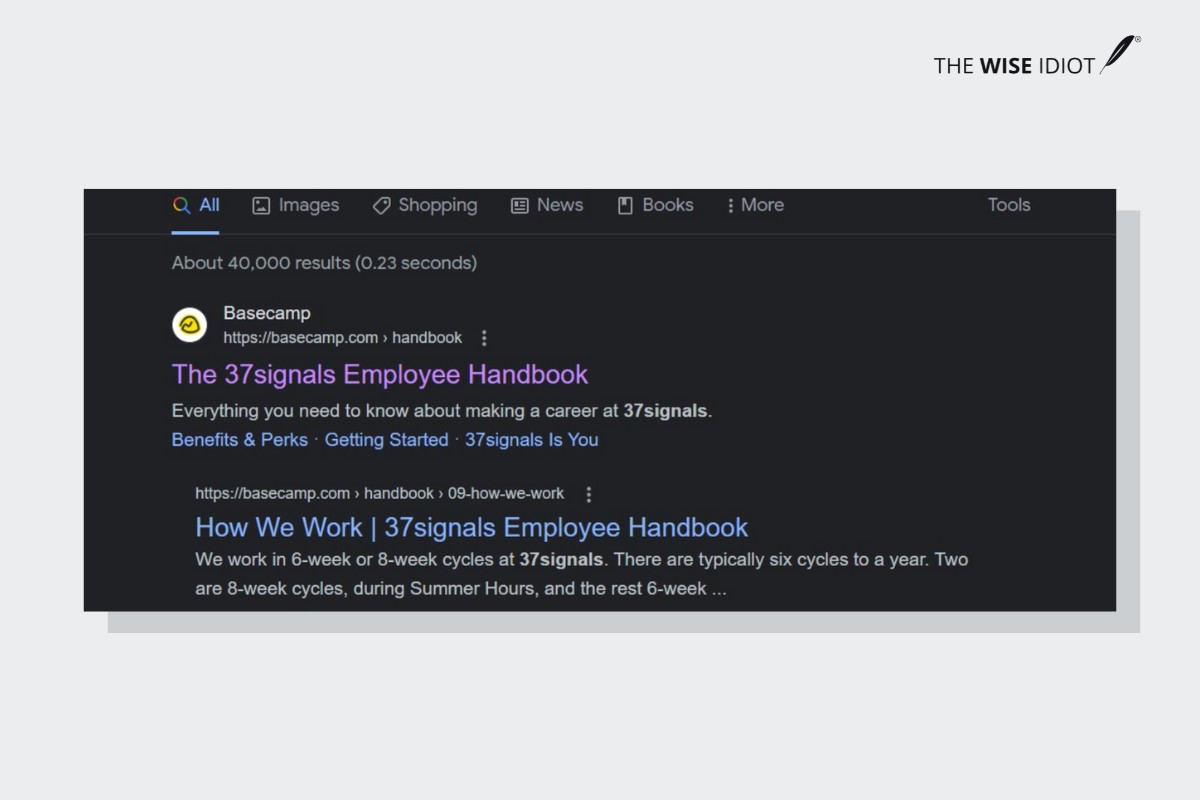
Moreover, EEAT is pivotal in building trust with customers and potential investors. In an era where online scams and misinformation are rampant, Indian businesses that prioritise EEAT instil confidence in their target audience.
For instance, a fintech company that shares expert insights and advice through its blog, backed by authoritative references and data, can position itself as a trustworthy source of financial information. This not only helps attract potential customers but also boosts audience confidence in the company’s capabilities.
Not sure how content marketing fits your business? Read: In-house vs Agency – What’s Your Marketing Strategy to decide what works best for your brand.
Incorporating EEAT into Your Content Strategy
Here are some tips for incorporating EEAT into your content strategy:
- Harnessing the Power of Expert Content Team: If you want to improve your content strategy with EEAT, the first step is to seek out a content team with qualified writers. One of the best places to find these writers is through a content marketing agency. By working with a top content marketing agency, you can benefit from their deep understanding of your industry, resulting in insightful, informative, and accurate content.
- Credible Sources: The Backbone of Trust: Incorporate data, studies, research papers, and peer-reviewed articles from reputable sources within your content. This approach demonstrates that your content is based on accurate information and industry expertise, further reinforcing your company’s credibility. By citing and linking to authoritative sources, you show your audience that your content is reliable, well-researched, and backed by evidence. This practice not only enhances your company’s reputation but also contributes to your content’s search engine optimisation (SEO) efforts.
- Crafting Trustworthy Content: Creating trustworthy content involves more than just using credible sources. It also requires a focus on clarity, transparency, and accuracy. Provide accurate information that is free from bias and distortion.
Clearly state your sources and methodologies, allowing readers to verify the information themselves. This makes your content a reliable resource that users can depend on, fostering long-term relationships and repeat engagement.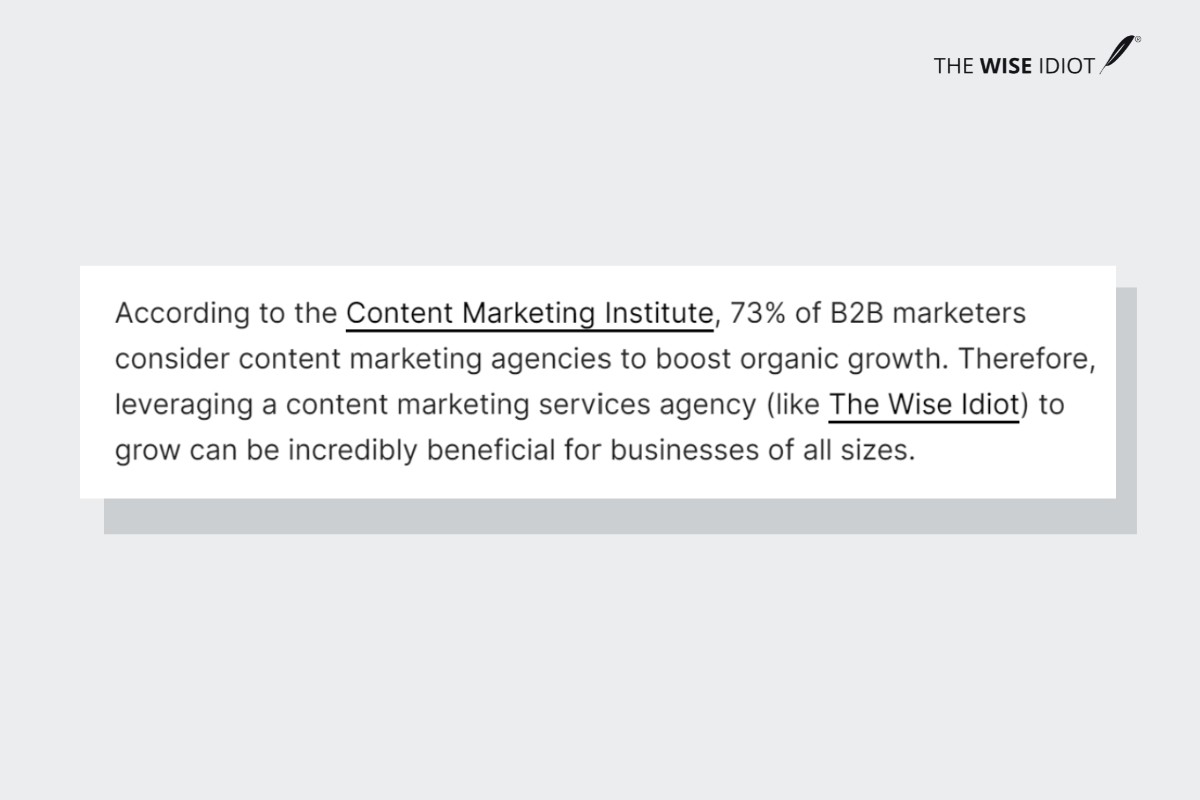
Fig 7: Example of using reliable sources - User Experience: Showcasing Expertise and Building Trust: Beyond the content itself, the overall user experience plays a vital role in establishing trust and reflecting expertise. Design your website with a user-centred approach, ensuring it is intuitive, accessible, and visually appealing. Incorporate features such as author biographies, certifications, and affiliations to highlight the expertise of your writers. Encourage user feedback and interaction to further strengthen the trust-building process.
To build content that ranks and resonates, consider working with a skilled content writing agency or a content marketing agency in Mumbai that understands how EEAT works in the real world—not just theory. From blog strategies to thought leadership, their expertise ensures every word builds trust and relevance.
EEAT in the Age of AI
As we enter the world of AI, content creators are increasingly using artificial intelligence (AI) to help them produce high-quality content. While AI-generated content can be helpful in some cases, it is often unable to follow the EEAT principle.
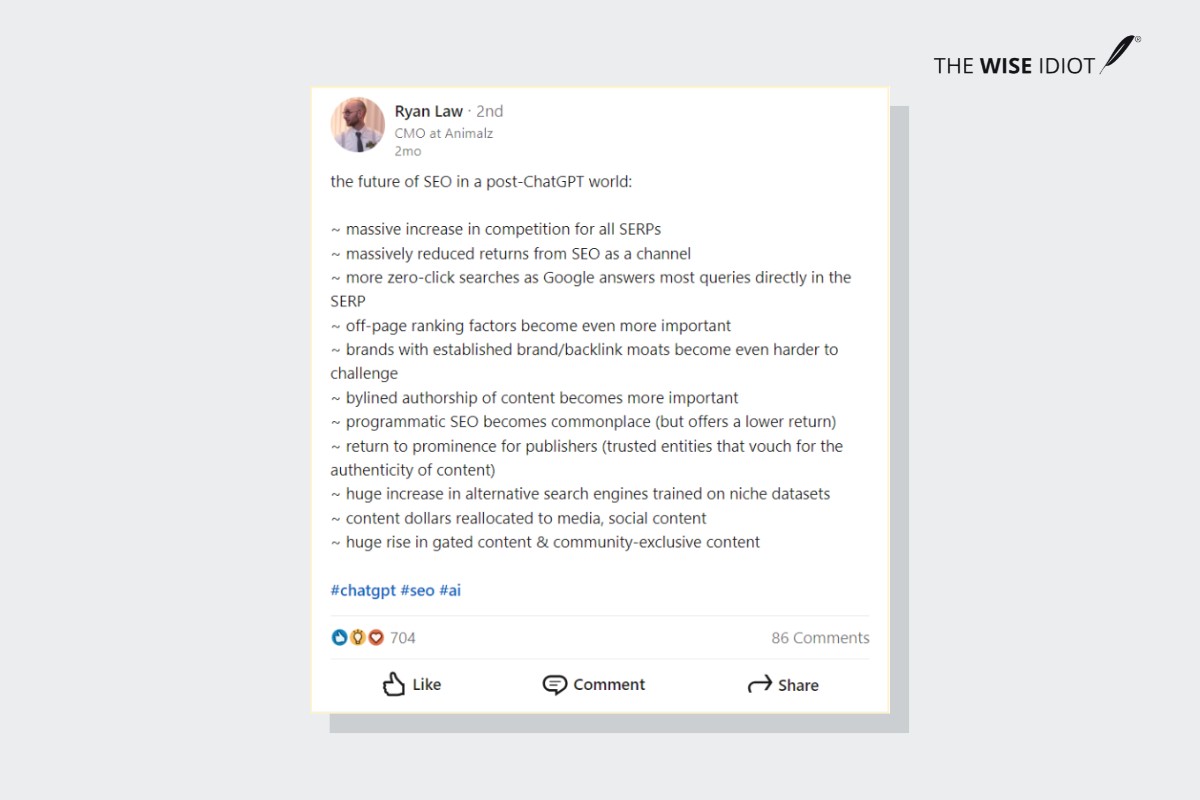
One reason for this is that AI-generated content is often not original. AI systems are trained on large datasets of text and code, and they can often generate text that is very similar to what they have been trained on. This can make it difficult for AI-generated content to stand out from the crowd and to be seen as authoritative or trustworthy.
Another reason AI-generated content is often unable to follow the EEAT principle is that your content may contain inaccurate information and fictional elements, such as fabricated quotes falsely attributed to actual individuals, non-existent data, and seemingly logical concepts that crumble when scrutinised.
King Ghosh, Lead Manager – Marketing, Zycus, advised, “As everyone is jumping on the ChatGPT bandwagon for creating SEO content in bulk, it’s very important to have your own voice. While ChatGPT is useful for getting content inspiration, it should be used only in the scope of inspiration, not as a content creation tool.
To stand out in the clutter of superficial articles and secure a good ranking in SERP, content marketers should keep these principles in mind:
- Do thorough research in the domain by consuming relevant articles
- Add anecdotes and examples which give the article its own PoV
- Stick to brevity. Instead of writing walls of text, provide succinct information
- Provide value. Use infographics, models, calculators, and FAQs to elevate the quality of your piece.”
To continue with King’s words, AI can be a valuable tool. It can be used to generate ideas, write outlines, and even create entire pieces of content. But it is ultimately up to humans to ensure that the content they create is EEAT-friendly, which means whether it aligns with the company’s viewpoint, surpasses the competition’s content, provides compelling evidence, and is engaging to read.
Final Thoughts
With the constant evolution of search engine algorithms and the increasing emphasis on delivering high-quality, reliable information to users, EEAT has become a fundamental aspect of successful content marketing strategies.
Whether you need engaging blog posts, informative articles, compelling social media content, or captivating website copy, A top content marketing agency like The Wise Idiot can be easy on the eye.
Our team of expert content marketers possesses all the necessary skills to develop customised strategies that comply with EEAT principles, guaranteeing the success of your brand’s online presence. We are dedicated to providing exceptional content and keeping abreast of the most recent industry trends and regulations.
Are you looking for ways to enhance your business through the use of high-quality content but confused about whether your business requires the services of a content marketing agency? Here is a short read to find out your answer!
Frequently Asked Questions
Q1. What is EAT in SEO?
Ans: Google created an acronym called E-A-T, which stands for Experience, Expertise, Authoritativeness, and Trustworthiness. E-A-T is not used as a ranking factor, but it is considered a vital component of Google’s Search Quality Evaluator Guidelines (SQEG).
Q2. What is an example of YMYL content?
Ans: YMYL (Your Money or Your Life) content should prioritize quality and directly impact people’s health, finances, or safety.
Google emphasizes E- E-A-T criteria for YMYL content. Websites providing content relating to finances, medicine, mental health, etc., should display a higher level of E-E-A-T to ensure readers’ safety and well-being. Meeting E-E-A-T guidelines increases YMYL content’s search performance and trust among readers.
Q3. What is the difference between EAT and EEAT?
Ans: The inclusion of experience is the primary distinction between EAT and EEAT. While EAT concentrates on expertise, authoritativeness, and trustworthiness as measures of a website’s credibility, EEAT introduces the experience component to the equation.


